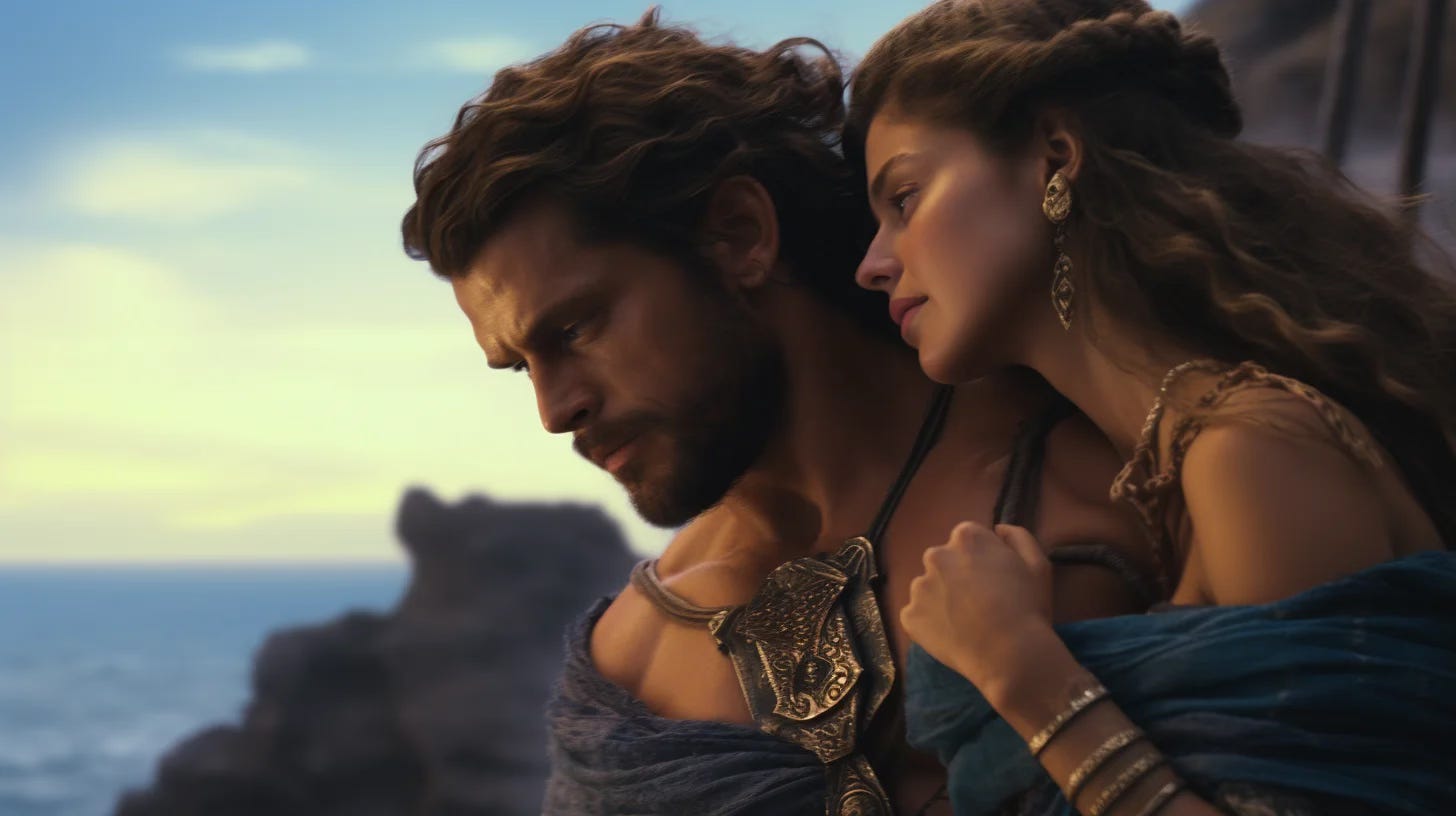The Odyssey: Reflections on Books 5 – 8
Fidelity: Sexual for Penelope & Directional for Odysseus
Fidelity
The theme of fidelity runs throughout Books 5-8. The requirement for Penelope is sexual fidelity. If that line is crossed with one of the suitors, the implication is that she will go the way of Clytemnestra. The requirement for Odysseus is a directional fidelity. He must keep moving toward Ithaca. With Calypso, Odysseus can apparently break sexual fidelity as long as he keeps his tearful eyes directed toward home.
The temptations to break sexual and directional fidelity for Penelope and Odysseus are strong. Penelope could calm the household chaos and secure her future by selecting a suitor. At this point, she doesn’t even know if Odysseus is still alive.
For Odysseus, Calypso offers him not just the temptations of the flesh, but immortality as well. This is a similar scenario to the prophecy presented to Achilles in The Iliad, where he’s offered a sort of glorified immortality in exchange for an early death. He choses glory, yet regrets it later (perhaps Odysseus’ wise choice here to turn down immortality was in part a result of hearing the lament of Achilles from Hades in Book 11).
In addition to offering immortality, Calypso lives in an Eden-like paradise, has a better body than Penelope (which she boasts about), and correctly predicts great suffering if Odysseus leaves. This is temptation at its highest—immortality and abundant pleasure—yet it’s not where Odysseus’ heart is:
“…weeping, his eyes never dry, his sweet life flowing away with the tears he wept for his foiled journey home, since the nymph no longer pleased.”
After Calypso, Odysseus is presented with another female temptations to drive him off course. Nausicaa, the young Phaeacian princess, like Calypso, is presented in an idyllic land (contrasted heavily with rocky Ithaca) and with the promise of a kingdom. It’s a temptation to gain a kingdom without the requirement of killing suitors first.
Book 8 keeps the theme of fidelity at the forefront when Demodocus sings of the adultery of Aphrodite and Ares. Aphrodite’s husband Hephaestus sets a trap for the adulterers and snares them in the act, creating a humorous situation for the gods. Odysseus is said to enjoy the storytelling, but the question of Penelope’s fidelity must weigh on his mind.
Hospitality
Another theme in these books is that of hospitality. With the Phaeacians, Odysseus is shown incredible hospitality by the royal family, yet is disdained by the townspeople. With Calypso, Odysseus experiences hospitality (she saves him) but he is not allowed to leave and remains for 7 years, a dishonoring of the sending off portion of hospitality.
Rebirth
One other theme in Books 5-8 is that of rebirth. When Odysseus arrives in the land of the Phaeacians, he has lost everything. His ships are gone, all of his men lost, and any possession at the bottom of the sea. He arrives as he came into the world, through the water and naked. Is this Odysseus’ chance at a new start?
Adjective Update
I’m monitoring descriptors of Odysseus (these are from Robert Fitzgerald’s translation):
Book 5 - strategist
Book 8 - man of all occasions, resourceful


